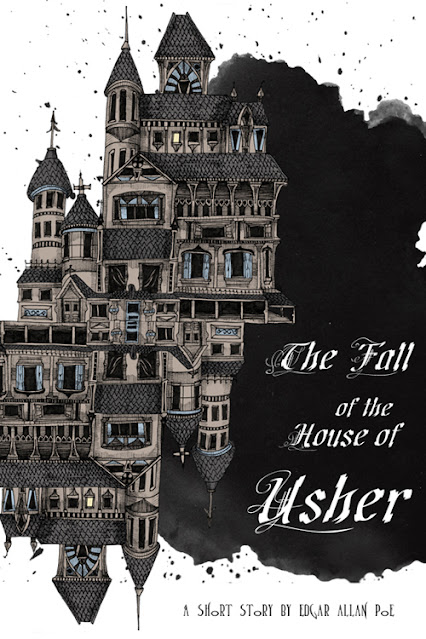"Not hear it? — yes, I hear it, and have heard it. Long — long — long — many minutes, many hours, many days, have I heard it — yet I dared not — oh, pity me, miserable wretch that I am! — I dared not — I dared not speak! We have put her living in the tomb!"
Today’s topic for Cinematic Void’s 31 Days of Voidoween is “Family Dysfunction.” The choices available to horror fans on this topic are myriad. Horror, it seems, is all about dysfunctional families. I mean, if they were functional...there wouldn’t be much horror, would there? Hereditary would have been a lot different if Toni Collette actually liked her kids, is all I’m saying. I’m going old school for my choice today. Let’s go back to America’s OG (Original Gothic), E.A. Poe and talk “The Fall of the House of Usher.”
First published in 1839 in Burton’s Gentleman's Magazine (was that the 19th Century Playboy?), “The Fall of the House of Usher” is all about familial madness and insularity. The Ushers, brother Roderick and sister Madeleine, spend their days secluded in the family home, a dark, dank mansion on the edge of a tarn. The house, according to Roderick, is as alive as he and his sister. The crack that extends from the roof to the foundation suggests that the house, like the family, is falling apart.
Both members of the Usher family are ill. Roderick can’t stand loud noises, and Madeleine falls into cataleptic-like trances that resemble death. Soon, Maddy dies (or does she?), and her body is placed in the family tomb in the catacombs beneath the house. Time passes until one night, with a storm raging outside, Madeleine appears before her brother and the unnamed narrator. She is bloodied from her time spent clawing her way out of her tomb. She falls on her brother, who dies of fright. The narrator hightails it out of the house just as the mansion crumbles and sinks into the tarn.
You can find “The Fall of the House of Usher” everywhere on the internet. You might say you can’t go anywhere on the web without “falling” over it. (Har-har!) You can read the story in its entirety here. If you like movies, check out Roger Corman’s adaptation from 1960. The script is written by the excellent Richard Matheson, and it stars Vincent Price.
If you prefer audio drama, then check out this episode of the old time radio program Escape. If you want straight up storytelling, then you can’t go wrong with this version read by the one and only Basil Rathbone.






No comments:
Post a Comment
What do you think? Let me know!